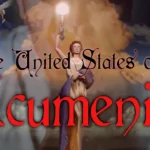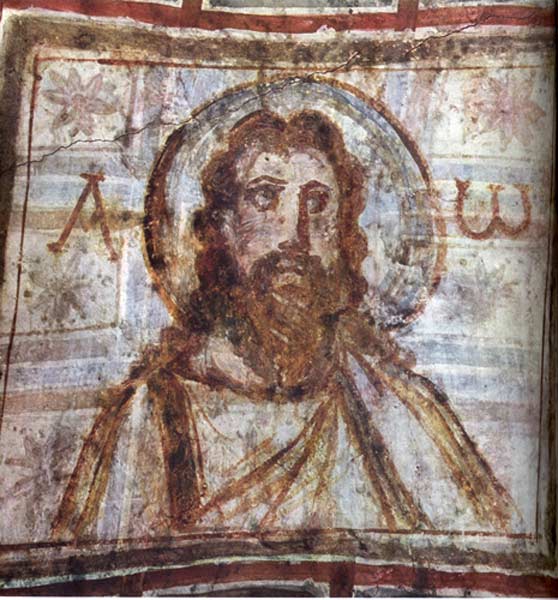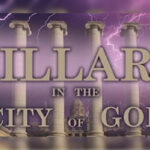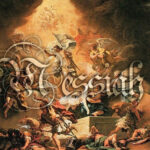Contrary to the contentions of some modern skeptics, there is quite a bit of evidence for Jesus as a historical figure. The New Testament documents are the best evidence. However, many skeptics would charge the believer of “using the Bible to prove the Bible.” In truth, that is fallacious reasoning because the Bible is not one source but a collection of 66 different books written by over 40 authors over a period close to 2,000 years. In the New Testament we have 27 separate books which corroborate each other. There is no better evidence for any figure from the ancient world than what we have for Jesus of Nazareth. That being said this section is a survey of the non biblical evidences for Jesus as a historical figure.
CORNELIUS TACITUS (55 – 120 A.D.) Tacitus was a 1st and 2nd century Roman historian who lived through the reigns of over half a dozen Roman emperors. Considered one of the greatest historians of ancient Rome, Tacitus verifies the Biblical account of Jesus’ execution at the hands of Pontius Pilate who governed Judea from 26-36 A.D. during the reign of Tiberius.
“Christus, the founder of the [Christian] name, was put to death by Pontius Pilate, procurator of Judea in the reign of Tiberius. But the pernicious superstition, repressed for a time, broke out again, not only through Judea,
where the mischief originated, by through the city of Rome also.” Annals XV, 44
What this passage reveals and how it confirms the Biblical account:
- Jesus did exist
- Jesus was the founder of Christianity
- Jesus was put to death by Pilate
- Christianity originated in Judea (With Jesus)
- Christianity later spread to Rome (Through the Apostles and Evangelists)
Skeptic Interjection: Could Tacitus have taken his information from Christian sources?
Answer: Because of his position as a professional historian and not as a commentator, it is more likely Tacitus referenced government records over Christian testimony. It is also possible Tacitus received some of his information from his friend and fellow secular historian, Pliny the Younger. Yet, even if Tacitus referenced some of Pliny’s sources, it would be out of his character to have done so without critical investigation. An example of Tacitus criticising testimony given to him even from his dear friend Pliny is found here: Annals XV, 55. Tacitus distinguishes between confirmed and hearsay accounts almost 70 times in his History. If he felt this account of Jesus was only a rumor or folklore, he would have issued his usual disclaimer that this account was unverified.
Skeptic Interjection: Could this passage have been a Christian interpolation?
Answer: Judging by the critical undertones of the passage, this is highly unlikely. Tacitus refers to Christianity as a superstition and insuppressible mischief. Furthermore, there is not a surviving copy of Tacitus’ Annals that does not contain this passage. There is no verifiable evidence of tampering of any kind in this passage.
Skeptic Interjection: Why is this passage not quoted by the early church fathers?
Answer: Due to the condescending nature of Tacitus’ testimony, early Christian authors most likely would not have quoted such a source (assuming Tacitus’ writings were even available to them). However, our actual answer comes from the content of the passage itself. Nothing in Tacitus’ statement mentions anything that was not already common knowledge among Christians. It simply provides evidence of Jesus’ existence (a topic not debated at this point in history) and not his divinity.
Skeptic Interjection: Does the incorrect use of title procurator instead of prefect negate Tacitus’ reliability?
Answer: No. Evidence is provided in both secular and Christian works which refer to Pilate as a procurator:
“But now Pilate, the procurator of Judea… Antiquities XVIII, 3:1
“Now Pilate, who was sent as procurator into Judea by Tiberius…” The Jewish Wars, Book II 9:2
“Pontius Pilate, procurator of Judea, in the times of Tiberius Caesar…” First Apology XII
It has been suggested by both Christian and secular scholars that Tacitus was either using an anachronism for the sake of clarity or, since Judea was a relatively new and insignificant Roman province, Pilate might have held both positions.
GAIUS SUETONIUS TRANQUILLUS (69 – 130 A.D.) Suetonius was a prominent Roman historian who recorded
the lives of the Roman Caesars and the historical events surrounding their reigns. He served as a court official
under Hadrian and as an annalist for the Imperial House. Suetonius records the expulsion of the Christian Jews
from Rome (mentioned in Acts 18:2) and confirms the Christian faith being founded by Christ.
“As the Jews were making constant disturbances at the instigation of Chrestus, [Claudius] expelled them from Rome.” Life of Claudius 25.4
Skeptic Interjection: Because Suetonius misspells Christus as Chrestus, is it possible he was referring to
someone else?
Answer: Because Chrestus was an actual Greek name, critics speculate Suetonius may have been referring to a
specific civil agitator. I would like to present a few arguments as to why I feel this is a reference to Jesus. In
0rder to get as close to the author’s intent as possible, this is the passage as it exists in the original Latin:
“Iudaeos (The Jews) impulsore (the instigation) Chresto (Chrestus) assidue (upon) tumultuantis (making a disturbance) Roma (Rome) expulit(were expelled).”
Suetonius seems to imply the word Chrestus as a title- not as a reference to a particular rebel. Though I
have seen critics cite the passage as “a certain/one Chrestus” we can see this is incorrect by the lack of
the word quodam in the original Latin.
Suetonius uses the word instigation- not instigator. The Latin word referring to an instigator is impulsor but
the term referring to an instigation is impusore- and this is the word Suetonius uses, thus affirming the
belief he is using the word Chrestus as a title and not as a name.
It was common for both pagan and Christian authors to spell the name using either an e or an i- and we
know the Christian authors were obviously referring to Jesus when they spelled the name as Chrestus.
Tertullian criticises pagan disdain for Christianity and points out the fact they can’t even spell the name
correctly. He implies the common misspelling of Chrestus by their use of the term Chrestians:
“Most people so blindly knock their heads against the hatred of the Christian name…It is wrongly pronounced by you as “Chrestians” (for you do not even know accurately the name you hate)… But the special ground of dislike to the sect is, that it bears the name of its Founder.“ Apology, Chapter III
We also see Justin Martyr (a Christian apologist, nonetheless!) using the incorrect spelling of Chrestian. First Apology IV
Lactantius repeats the lament of Tertullian with his statement,
“But the meaning of this name must be set forth, on account of the error of the ignorant who by the change of a letter are accustomed to call Him Chrestus.”
Fathers of the Third and Fourth Centuries
Chrestus was a Greco-Roman slave name but Suetonius tells us “foreigners” were not allowed to adopt
such names. Knowing the Jews were a close-knit community, the idea of them following the revolt of a
gentile slave to such an extent to get them (and only them!) expelled from Rome is quite a stretch.
Skeptic Interjection: How could this passage refer to Jesus. He was never said to have travelled to Rome.
Answer: If Chrestus does refer to a title and not a specific name (as we are asserting), there is no need for Him
to have been in Rome. A leader can still be “an instigator” for a cause without being in the vicinity. There are
many causes that survived long after the lives of those who initiated certain movements.
THALLUS (~ 52 A.D.) Although his works exist only in fragments, Julius Africanus debates Thallus’ explanation
of the midday darkness which occurred during the Passover of Jesus’ crucifixion. Thallus tries to dismiss the
darkness as a natural occurrence (a solar eclipse) but Africanus argues (and any astronomer can confirm) a
solar eclipse cannot physically occur during a full moon due to the alignment of the planets. Phlegon of Tralles, a
2nd century secular historian, also mentions the darkness and tries to dismiss it as a solar eclipse. He also states
the event occurred during the time of Tiberius Caesar.
“On the whole world there pressed a most fearful darkness. The rocks were rent by an earthquake and many places in Judea and other districts were thrown down. This darkness Thallus, in the third book of his History, calls, as appears to me without reason, an eclipse of the sun. For the Hebrews celebrate thE passover on the 14th day according to the moon, and the passion of our Savior falls on the day before the passover. But an eclipse of the sun takes place only when the moon comes under the sun. And it cannot happen at any other time… Phlegon records that, in the time of Tiberius Caesar, at full moon, there was a full eclipse of the sun from the sixth hour to the ninth-manifestly that one of which we speak. Chronography XVIII, 47
Skeptic Interjection: Why doesn’t Pliny the Elder or Seneca mention this event in their writings
Answer: Pliny focused his writings on natural astronomical events that had physical, scientific explanations. It is
doubtful he would have found it necessary to record an event of supernatural origin. I can also find no mention of
him being in Judea at the time so it is doubtful he would have mentioned it if he did not witness the event first
hand. Seneca focused his writings on dramas, dialogues, and tragedies but also wrote a meteorological essay,
Natural Questions, composed of theories pertaining to ancient cosmology. However this was by no means a
complete scientific almanac of events- it was a literary work. And like Pliny, it is doubtful Seneca was in Judea
during this event.
Skeptic Interjection: Because Thallus’ and Phlegon’s works exist only in fragments, can their testimonies be
considered reliable?
Answer: This is something the reader will have to determine on their own. Africanus was an honest, qualified
author who did not alter the quotes to serve his own purpose. This is very likely considering what we know about
Africanus (See: here). Africanus’ methods were highly respected by his peers, he was often quoted by other
authors, and he even chastises his friend and fellow Christian, Origen, for citing information from a
spurious/unreliable source! (See: Africanus’ letter to Origen). It also must be noted that Thallus never said this
eclipse did not happen but instead was trying to actually come up with a scientific explanation to the eclipse
instead of assigning it divine origins.
PLINY THE YOUNGER (63 – 113 A.D) Pliny the Younger admits to torturing and executing Christians who
refused to deny Christ. Those who denied the charges were spared and ordered to exalt the Roman gods and
curse the name of Christ. Pliny addresses his concerns to Emperor Trajan that too many citizens were being
killed for their refusal to deny their faith.
“I asked them directly if they were Christians…those who persisted, I ordered away… Those who denied they were or ever had been Christians…worshiped both your image and the images of the gods and cursed Christ. They used to gather on a stated day before dawn and sing to Christ as if he were a god… All the more I believed it necessary to find out what was the truth from two servant maids, which were called deaconesses, by means of torture. Nothing more did I find than a disgusting, fanatical superstition Therefore I stopped the examination, and hastened to consult you…on account of the number of people endangered. For many of all ages, all classes, and both sexes already are brought into danger…” Pliny’s letter to Emperor Trajan
Though Pliny states some of the accused denied the charges, a recurring theme in the correspondence between
Pliny and Trajan is the willingness of the true believer to die for Christ. This would hardly be reasonable if they
knew He never existed!
Skeptic Interjection: How does dying for one’s belief verify the actual existence of Jesus? The sincerity of a
belief does not necessarily make the belief true. How does this passage specifically confirm a historical Jesus and
not just the existence of Christians in Rome?
Answer: Pliny states the Christians worshiped Christ as if he were a god. This indicates one who would not
normally be considered a god, such as a human who was exalted to divine status. Also, the early Christians
would have been in the position to know if Jesus was a historical figure or not. Though critics can claim these
martyrs took Jesus’ existence solely on faith, common sense tells us there would have been a lot more evidence
of a historical Jesus at this time than what has been preserved until today. According to early historians, Jesus’
great-nephews and other relatives were still alive as well as the associates of the original apostles. Such
individuals could easily verify His existence. Also, documents which have been lost to us were still in existence
(such as Jesus’ trial records and the census records of His birth) and were even referenced by early authors who
wrote about Jesus. These individuals had every reason to be certain of Jesus’ existence and were willing to die
because of it.
Skeptic Interjection: Pliny also states some recanted their testimony. Perhaps they did so because they knew
Jesus was a myth.
Answer: There are several rational explanations as to why some would recant their Christian beliefs:
Pliny readily admits to torturing some of the accused (are admissions/denials really credible under torture!?). The accused knew if they did not recant they would be put to death (fallible human rationalization: confess and go home [and work out the hard feelings with Jesus later] or suffer crucifixion?). Some of the accused could have been lackadaisical Christians who half-heartedly accepted Christianity because of a spouse, parent, or friend (and would havE had no problem reverting back to paganism upon facing persecution). There were half-hearted Christians 2,000 years ago just like there are half-hearted Christians today. New Christians may have recanted to escape persecution if they were not familiar with or did not understand the severity of Jesus’ warning regarding those who deny their Christian beliefs). ThE correspondence between Pliny and Trajan implies many of the accused were being turned in falsely by their enemies. Some were never Christians to begin with while some had already left the faith prior to their interrogation. Just because there were some who may have recanted out of fear or poor judgment doesn’t dismiss the deaths of the other individuals who were certain of Jesus’ existence and died because of their knowledge.
Secular Commentary
CELSUS (~ 178 A.D.) Celsus was a second century Roman author and avid opponent of Christianity. He went to
great lengths to disprove the divinity of Jesus yet never denied His actual existence. Unfortunately for Celsus, he
sets himself up for criticism by mimicking the exact accusations brought against Jesus by the pharisees which
had already been addressed and refuted in the New Testament. There are two very important facts regarding
Celsus which make him one of the most important witnesses in this discussion:
Though most secular passages are accused of being Christian interpolations, we can accept with certainty
this is not the case with Celsus! The sheer volume of his writings (specifically designed to discredit
Christianity) coupled with the hostile accusations presented in his work dismiss this chance immediately.
The idea of Celsus getting his information entirely from Christian sources (another recurring accusation
against secular evidence) is wholly absurd. Though he is obviously aware of his opponents’ beliefs (as
anyone who is engaging in a debate should be), Celsus wrote his exposition in the form of a dialogue
between a “Jewish Critic” and himself. This gives us cause to believe he used non-Christian (probably
Jewish) sources.
On Jesus’ Miracles:
“Jesus, on account of his poverty, was hired out to go to Egypt. While there he acquired certain [magical] powers… He returned home highly elated at possessing these powers, and on the strength of them gave himself out to be a god… It was by means of sorcery that He was able to accomplish the wonders which He performed… Let us believe that these cures, or the resurrection, or the feeding of a multitude with a few loaves… These are nothing more than the tricks of jugglers… It is by the names of certain demons, and by the use of incantations, that the Christians appear to be possessed of [miraculous] power…”
Not only does Celsus confirm Jesus’ existence, he also tries to debate the source of Jesus’ miracles. Like the
pharisees of Jesus’ day, Celsus tries to dismiss these miracles as both demonic possession and cheap parlor
tricks. However, he is clearly grasping at straws: On one hand Celsus accuses Jesus of performing magic learned
in Egypt, then later states it is by the power of possession, then states the miracles were not really miracles at all
but were illusionary tricks performed by a deceiver, then finally states the miracles never occurred!
On the Virgin Birth:
“Jesus had come from a village in Judea, and was the son of a poor Jewess who gained her living by the work of her hands. His mother had been turned out by her husband, who was a carpenter by trade,on beinG convicted of adultery [with a Roman soldier named Panthera]. Being thus driven away by her husband, and wandering about in disgrace, she gave birth to Jesus, a bastard.”
Celsus acknowledges Jesus’ birth and existence but does not accept the concept of a virgin conception. He tries
to dismiss Mary’s premarital pregnancy as the result of an affair she had with a Roman soldier. Strangely
enough, there is a very similar passage in the Jewish Talmud which makes the same accusation. This gives us
reason to believe Celsus might have referenced Jewish sources for some of his arguments.
On the Apostles:
“Jesus gathered around him ten or eleven persons of notorious character… tax-collectors, sailors, and fishermen… [He was] deserted and delivered up by those who had been his associates, who had him for their teacher, and who believed he was the savior and son of the greatest God… Those who were his associates while alive, who listened to his voice, and enjoyed his instructions as their teacher, on seeing him subjected tO punishment and death, neither died with nor for him… but denied that they were even his disciples, lest they die along with Him.”
Celsus’ intentions were to argue that if the disciples really believed Jesus was the Son of God, they would not
have forsaken Him at His arrest. Instead, he only ends up confirming the Biblical account! The Bible tells us when
Jesus was arrested, the apostles denied being His followers. It was only upon Jesus’ resurrection they understood
the spiritual principles concerning Jesus’ crucifixion and boldly went out to preach the Gospel. Celsus is also
wrong with his statement, [they] neither died with nor for him. We are told by early historians all but one of the
remaining apostles were killed for their faith.
On Jesus’ Divinity:
“One who was a God could neither flee nor be led away a prisoner… What great deeds did Jesus perform as God? Did he put his enemies to shame or bring to an end what was designed against him? No calamity happened even to him who condemned him… Why does he not give some manifestation of his divinity, and free himself from this reproach, and take vengeance upon those who insult both him and his Father?”
Celsus ridicules Jesus for the exact same reasons the pharisees of His time ridiculed Him- if Jesus was the Son of
God, why didn’t He save Himself from the cross? Neither Celsus nor the pharisees understood the spiritual
implications of Jesus’ death to atone for sin. Celsus also asks why no judgment came upon the Jews but history
shows shortly after His death Jerusalem was invaded by the Romans, the Jewish temple was destroyed, and the
Jewish people were dispersed for almost 2,000 years!
John the Baptist
“If any one predicted to us that the Son of God was to visit mankind, he was one of our
prophets, and the prophet of our God? John, who baptized Jesus, was a Jew.”
Celsus confirms Jesus’ baptism by John but asserts that John was the only one who actually prophesied His
coming- not the Old Testament Messianic prophecies.
On the Crucifixion:
“Jesus accordingly exhibited after His death only the appearance of wounds received on the
cross, and was not in reality so wounded as He is described to have been.”
In this statement, Celsus confirms Jesus’ death by crucifixion although he claims the only wounds Jesus received
were those inflicted by the crucifixion (thus denying any previous torture had taken place). But not even history
offers Celsus the benefit of a doubt as floggings were the standard form of torture given to victims prior to
crucifixion (See here). Celsus contradicts himself yet again when he later states Jesus was probably never even
crucified but instead had an impostor die in His place!
Skeptic Interjection: Celsus also states, “It is clear to me that the writings of the Christians are a lie and that
your fables are not well enough constructed to conceal this monstrous fiction.” How do we know Celsus is
referring to a historical Jesus and not just debating myth?
Answer: Evidence which shows Celsus to be refuting aspects of a historical Jesus is as follows: Our answer can be found in Celsus’ own words: He was therefore a man, and of such a nature, as the truth itself proves, and reason demonstrates him to be. Satisfied with his presentation of evidence, Celsus offers his conclusion that Jesus was only a man- not a myth (or a God, as the apostles had claimed). Instead of denying the alleged events, Celsus offers alternative theories to the early Christian claims (like the virgin birth being a cover-up for an illegitimate pregnancy and the miracles actually being works of sorcery). If he was discussing a mythical character, he would not have needed to go to such lengths but merely to have dismissed Jesus as a myth. After all, there is no easier way to discredit a religion than to assert its founder never existed! Of course, this is an argument Celsus never makes. The “fables” Celsus refers to is his belief that the claims such as a virgin birth and resurrection were embellishments created by early Christians- not that Jesus was Himself a myth. Celsus was debating the claims of Jesus’ divinity, not His existence.
LUCIAN OF SAMOSATA (120 – ~180 A.D.) Lucian was a second century Greek satirist and rhetorician who
scornfully describes his views of early Christianity. Though he ridicules the Christians and their Christ, his
writings confirm Jesus was executed via crucifixion and that He was the founder of Christianity.
“The Christians, you know, worship a man to this day- the distinguished personage who introduced their novel rites, and was crucified on that account… It was impressed on them by their original lawgiver that they are all brothers from the moment they are converted and deny the gods of Greece, and worship the crucified sage, and live after his laws…” The Death of Peregrinus 11-13
What this passage reveals and how it confirms the Biblical account:
- Jesus did exist
- Jesus was the founder of Christianity
- Jesus was worshiped by His followers
- Jesus suffered death by crucifixion
Skeptic Interjection: Can we consider Lucian’s testimony reliable due to the source being a literary work
Answer: Lucian’s commentary revolved around historical events. In Lucian’s work The Way to Write History, he
openly criticises his contemporaries who distort history to flatter their masters or those who fill in the historical
gaps with personal conjecture:
“The historian’s one task is to tell the thing as it happened… He may nurse some private dislikes, but he
will attach far more importance to the public good, and set the truth high above his hate… For history, I
say again, has this and only this for its own. If a man will start upon it, he must sacrifice to no God but
Truth. He must neglect all else.“ The Way to Write History
Skeptic Interjection: Is it possible Lucian received his knowledge from Christian sources or that this passage
is an interpolation?
Answer: Seeing how adamant Lucian was in regards to historical accuracy and critical investigation, our answer
is an emphatic no. As to the passage being a Christian interpolation, chances are the reference to Jesus would be
far more favorable if this were so. Lucian refers to Jesus only as a man, a lawgiver, and a sage (human- not
divine- descriptions). He never once refers to Jesus as a God. Furthermore, there isn’t anything in the above
statement that reveals what wasn’t already known- it merely asserts that Jesus lived, preached, and died.
Remember, at this time Christians were trying to prove Jesus’ divinity- not His existence.
MARA BAR-SERAPION (Post 70 A.D) Mara Bar-Serapion of Syria penned this letter from prison to his son.
Though it is obvious he does not acknowledge Jesus as the Son of God, he does mention aspects of Jesus’ life.
There is some criticism regarding this passage but it must be noted nothing in Serapion’s letter contradicts what
we know about Jesus.
“What advantage did the Athenians gain from putting Socrates to death? Famine and plague came upon them as a judgment for their crime. What advantage did the men of Samos gain from burning Pythagoras? In a moment their land was covered with sand. What advantage did the Jews gain from executing their wise King? It was just after that their kingdom was abolished. God justly avenged these three wise men: The Athenians died of hunger. The Samians were overwhelmed by the sea. The Jews, ruined and driven from their land, live in complete dispersion. But Socrates did not die for good. He lived on in the teachings of Plato. Pythagoras did not die for good. He lived on in the statue of Hera. Nor did the wise King die for good. He lived on in the teaching which He had given.” Source
Skeptic Interjection: How do we know this passage is a reference to Jesus?
Answer: There are several references in this passage which imply Serapion is referring to Jesus:
He was a wise King (Jesus was mocked by the Romans as The King of the Jews, the messianic prophecies
fulfilled by Jesus referred to the coming Messiah as a king,Christian believers believed Jesus was their promised spiritual king, and Jesus was born from the royal line of King David).
He was Jewish (Jesus was a Galilean Jew).
He was executed (Jesus was crucified after the Jews appealed to Pilate to have Him crucified).
After His death Jerusalem and the Temple were destroyed (This occurred in 70 A.D., after Jesus’ death).
The Jews were dispersed after His death (The Jews abandoned Judea after the Roman attack of 70 A.D.).
He was a teacher (Jesus was a rabbi/teacher).
He lived on after death in His teachings (Jesus and His teachings founded the Christian faith).
Skeptic Interjection: Is it possible Serapion was referring to another person?
Answer: Though critics mention other possible candidates, the timing is off as Serapion specifically states just
after that their kingdom was abolished. Only Jesus fits into the appropriate timeline as Titus destroyed Jerusalem
a mere 36 years after Jesus’ crucifixion. The others lived approximately 170-250 years prior to the desolation.
Skeptic Interjection: Didn’t the Romans technically kill Jesus, though?
Answer: As I mention towards the bottom of this page, The Jews were under Roman domination which restricted
their ability to execute capital punishment. The Jews rallied the Roman government to crucify Jesus for the crime
of blasphemy as they did not have the legal power to do so. Even the Bible mentions Pilate’s reluctance to punish
an innocent man but that he allowed it to take place to prevent a Jewish revolt in an already hostile environment.
Jewish Sources
FLAVIUS JOSEPHUS (37 – 100 A.D.) Josephus was a first century pharisee and historian of both priestly and
royal ancestry who provided important insight into first-century Judaism. Josephus was born only three years
after the crucifixion of Jesus, making him a credible witness to the historicity of Jesus.
“Now there was about this time Jesus, a wise man, if it be lawful to call him a man, for he was a doer of
wonderful works, a teacher of such men as receive the truth with pleasure. He drew over to him both many of the Jews and many of the Gentiles. He was the Christ, and when Pilate, at the suggestion of the principal men among us, had condemned him to the cross, those that loved him at the first did not forsake him. For he appeared to them alive again the third day. As the divine prophets had foretold these and ten thousand other wonderful things concerning him. And the tribes of Christians so named from him are not extinct at this day.” Antiquities XVIII, 3:2
Skeptic Interjection: Could this passage have been altered or interpolated by early Christian authors?
Answer: Some think this passage is a complete interpolation while some believe the passage is authentic.
However, the general consensus among scholars is that Josephus most likely made some sort of mention to
Jesus but that the original text became distorted over time. Because this passage is a source of great debate, we
will touch on a few of the arguments presented by both sides:
ARGUMENTS FOR AUTHENTICITY
1: The vocabulary found in the Testimonium is consistent with the vocabulary used in other passages in Antiquities. The phrase Now about this time is used at the beginning of this passage as well dozens of other passages. It’s also doubtful a Christian forger would have referred to Jesus as simply a wise man but then go on to assert claims of His divinity. Yet, Josephus uses this word to refer to many other notable (and purely human) figures. Josephus also uses the description of Jesus’ miracles as wonderful [astonishing, surprising] works. Lastly, Josephus refers to Christianity as a tribe- just like he does many other times in reference to both major and minor sects.
2: Once the disputed words (printed in regular font in the above passage) are removed, Josephus’ though process flows just as well. This lends credence to the possibility the passage wasn’t wholly interpolated but perhaps altered. When we omit the disputed words, the passage seems consistent with what an orthodox Jew would say concerning Jesus:
“Now there was about this time Jesus, a wise man, for he was a doer of wonderful works, a teacher of such men as receive the truth with pleasure. He drew over to him both many of the Jews and many of the Gentiles. And when Pilate, at the suggestion of the principal men among us, had condemned him to the cross, those that loved him at the first did not forsake him. And the tribes of Christians so named from him are not extinct at this day.”
3: Greek and Arabic translations of the Testimonium contain disclaimers preceding the suspicious declarations such as “Jesus who was believed to be the Christ” and “It has been reported that He appeared to them alive again on the third day.” If anything, this could lead to the speculation that Christian authors did not add to the text but edited it by deleting the disclaimers!
4: The earliest versions of Antiquities contain the passage as it is presented above.
Objection: The earliest surviving copy dates from 10th century A.D. (plenty of time from the publication of Antiquities to alter or interpolate the passage).
Answer: This is true. We do not have an extant copy of Antiquities dating from before 10th century A.D. What we do have however, is several citations of this passage by other authors prior to the 10th century).
5: Many defenders of the Testimonium’s authenticity speculate that if it had been wholly interpolated by a Christian, they most likely would have inserted the passage next to the John the Baptist references. Though I understand their reasoning, I feel this argument is based on conjecture instead of evidence. The alleged Christian forger could have had just as much reason to insert this passage next to the John passage, the Pilate passage, or the James passage.
________________________________________________________________________
ARGUMENTS AGAINST AUTHENTICITY
1: This passage seems to interrupt the continuity of Josephus’ thought process in the previous and
subsequent verses.Answer: Interruptions are frequently found in Josephus’ works since he composed his histories during different sittings. Furthermore, Josephus was known to use the assistance of scribes during his writings which could easily resolve this issue.
2: The passage contains proclamations an orthodox Jew would not make such as Jesus being the Christ.
Answer: In other translations (Greek and Arabic) the suspicious statements contain disclaimers such as “Jesus who was believed to be the Christ” and “It has been reported…” This presents the theory Josephus was recording the beliefs regarding Jesus and not necessarily his personal opinion (as a responsible historian should do).
3: Early Christian authors like Origen and Justin Martyr do not mention this passage in their writings.
Answer: I’m not sure what the motive is behind this objection because Origen does reference the other passage by Josephus yet critics claim the reference is “too late” to be reliable! But, for argument’s sake if we assume this passage did exist in the form most scholars believe it did, the early church fathers might not have felt the need to refer to it. The [original?] passage serves as evidence for the historicity of Jesus- a topic not hotly debated at this point as the burden of proof revolved around His divinity.
Objection: Origen attests to the historicity of John the Baptist in his work Contra Celsus when it wasn’t even being debated. He could have cited this passage too.
Answer: In Origen’s Contra Celsus the divinity of Jesus was being debated- not his existence. Though Josephus allegedly admits to Jesus performing miracles, he does not state how. It would have made no sense for Origen to cite the Testimonium since it doesn’t either dispute or confirm Celsus’ claims. Furthermore, even if the original Antiquities still existed in Josephus’ own handwriting, critics would say he either drew his information from Christian sources or was to late to be considered reliable!
4: Josephus’ Jewish Wars also contains this passage so it must be a forgery.
Answer: This is false- the Testimonium is not found in the Jewish Wars. To the contrary- Skeptics criticize that the Testimonium is not found in The Wars but should have been!
5: Josephus should have written more regarding Jesus if the passage was genuine.
Answer: What topic or how much an author writes about a topic is their prerogative. Also, since Josephus believed Jesus was just another messianic pretender and false prophet, it would have made little sense for Josephus to have written volumes concerning His life and actions. It would be similar to a modern a Christian author exhaustively recording the life of Jim Jones or David Koresh. Josephus most likely held Jesus in the same regard and felt he warranted little mention. After weighing the evidence for myself, I personally agree with the consensus of scholars that Josephus did make some mention of Jesus in this passage but that the text was later altered. Because opinions differ so greatly, I will leave the final conclusion up to the reader. For a more in-depth discussion on this topic, I suggest reading this non-biased article which details both sides of the on-going debate (although this author believes the passage was wholly interpolated).
We’ll now examine the second passage given to us by Josephus. Fortunately, it is not surrounded in as much controversy!
“So [Ananus] assembled a council of judges, and brought before it the brother of Jesus, the so-called Christ, whose name was James, together with some others, and having accused them as lawbreakers, he delivered them over to be stoned.” Antiquities XX 9:1
Skeptic Interjection: Is it possible this passage was interpolated by early Christians?
Answer: It must be noted that no copy of Antiquities has ever surfaced without the above text quoted as it is
above. Critics are suspicious of the so-called Christ statement yet this reference (rather than the Christ) shows
Josephus was not condoning the belief but simply documenting it. Also, this passage concerns the actions of
the priest Ananus- Jesus and James were not even the primary focus of this verse! Lastly, this passage is cited in
other early works which attests to its authenticity.
Even if we dismiss the disputed words in Josephus’ Testimonium, we still see he testifies to a number of things in
the above two passages:
Jesus lived in the first century
He performed wonderful works (miracles)
Some believed Jesus to be the Christ
He was a teacher
He had many followers
He was tried by Pilate
He was crucified
He was the founder of Christianity
James was the brother of Jesus
THE BABYLONIAN TALMUD
The Babylonian Talmud is an ancient record of Jewish history, laws, and rabbinic
teachings compiled throughout the centuries. Though it does not accept the divinity of Jesus, it confirms the belief
He was hanged (an idiom for crucifixion) on the eve of the Passover.
“On the eve of the Passover Yeshu (Jesus) [Some texts: Yeshu/Jesus the Nazarene] was hanged [crucified]. Forty days before the execution, a herald went forth and cried, ‘He is going forth to be stoned because he has practiced sorcery and enticed Israel to apostasy. Any one who can say anything in his favor, let him come forward and plead on his behalf.’ But since nothing was brought forward in his favor he was hanged on the eve of the Passover.”
Skeptic Interjection: How can we know the Talmud is documenting Jesus’ existence and not only stating the
rumor surrounding a myth?
Answer: In the above excerpt the Talmud mentions Jesus’ ability to perform miracles but tries to dismiss it as
sorcery. If the writers were simply refuting myth, they would most likely have dismissed the tale as a rumor- not
assign alternative theories to defend their position.
Skeptic Interjection: How can we know this passage is a reference to Jesus and not another individual with the
name Yeshu?
Answer: Though it is possible this passage could refer to another individual, we know Jesus was killed during the
Passover, we know He was crucified (a Jewish idiom for hanged), we know He was accused of practicing sorcery
by the pharisees (for His miracles), and He was ultimately arrested for the sin of blasphemy (enticing Israel to
apostasy). Furthermore, there are other translations which read Yeshu the Nazarene which give us even more
reason to believe this passage pertains to Jesus.
EXTRA BIBLICAL CHRISTIAN EVIDENCE
Note: Though many skeptics claim the early church fathers did not use independent extra-Biblical sources,
throughout this section we will show otherwise. Potential references to the use of a extra-biblical sources will be
shown using purple font.
CLEMENT OF ROME (? – 98? A.D.) Clement was a bishop of Rome and later became known as the fourth pope.
He was eventually martyred in approximately 98 A.D. Some speculate Paul was referring to Clement in
Philippians 4:3 but this cannot be proven. Clement was a first century apostolic author which gives credence to
his first-hand account of early Christianity. In the passage below, Clement confirms the ministry of the disciples
and some of the basic tenets of early Christianity.
“The Apostles received the Gospel for us from the Lord Jesus Christ. Jesus Christ was sent forth from God. So
then Christ is from God, and the Apostles are from Christ. Both therefore came of the will of God in the appointed order. Having therefore received a charge, and being fully assured through the resurrection of our Lord Jesus Christ and confirmed in the word of God will full assurance of the Holy Ghost, they went forth with the glad tidings that the kingdom of God should come. So preaching everywhere in country and town, they appointed their first fruits, when they had proved them by the Spirit, to be bishops and deacons unto them that should believe.” Corinthians 42
Examples of Extra-Biblical Resource Evidence for Clement:
“And giving heed unto His words, ye laid them up diligently in your hearts, and His sufferings were before your eyes“ Chapter 2 (correspondence with possible eye-witnesses)
Tertullian and Jerome record the belief Clement was personally ordained by and a disciple of Peter (which implies he was privy to extra-biblical information as he was close to an original apostle).
“The New Testament he [Clement] never quotes verbally. Sayings of Christ are now and then given, but not in the words of the Gospels. It cannot be proved, therefore, that he used any one of the Synoptic Gospels.” The Catholic Encyclopedia Online
IGNATIUS OF ANTIOCH (? – ~100 A.D) Ignatius was a Bishop of Antioch reported to have been appointed to
his position by Peter of whom he was a disciple. He is also believed to be a disciple of Paul and John. Ignatius
was arrested by the Romans and executed as a martyr in the arena. Even though his testimony would ultimately
lead to his death, Ignatius was adamant about the things he witnessed. He reinforces early Christian beliefs in
the letters he penned while in prison. Even when execution was imminent, Ignatius refused to recant his faith.
“Jesus Christ who was of the race of David, who was the Son of Mary, who was truly born and ate and drank, was truly persecuted under Pontius Pilate, was truly crucified and died in the sight of those in heaven and on earth and those under the earth. Who moreover was truly raised from the dead, His father having raised Him, who in the like fashion will so raise us also who believe in Him.” Trallians
“He is truly of the race of David according to the flesh but Son of God by the Divine will and powered, truly born of a virgin and baptized by John that all righteousness might be fulfilled by Him, truly nailed up in the flesh for our sakes under Pontius Pilate and Herod the tetrarch… That He might set up an ensign unto all ages through His resurrection.” Smyrneans, 1
“Be ye fully persuaded concerning the birth and the passion and the resurrection, which took place in the time of the governorship of Pontius Pilate. For these things were truly and certainly done by Jesus Christ our hope.” Magnesians XI
Examples of Extra-Biblical Resource Evidence for Ignatius: Theodoret states Ignatius was personally appointed to the Antioch See by Peter (like Clement, this implies a personal relationship with an original apostle, making extra-biblical information available to him). John Chrysostom emphasises the honor bestowed upon Ignatius as he personally received his dedication from the apostles. Clement was also believed to be a disciple of Paul and John.
Skeptic Interjection: How can Clement and Ignatius knowing the apostles be considered extra-biblical
resources? If some of the apostles were said to have written the New Testament, how is this any different than
using the New Testament as a source?
Answer: There are several reasons why this is important. First of all, Clement and Ignatius would have most
certainly been privy to the apostles’ first-hand testimonies instead of simply having to rely on a “text” that
“someone” had written. Second, because they were said to have known the apostles intimately, they would have
had a far greater ability to discredit their claims. Apparently the disciples passed all of their tests because both
Clement and Ignatius died as martyrs (which would have been highly unlikely if they had any doubts concerning
the apostles’ claims).
QUADRATUS OF ATHENS (126 A.D.) Quadratus was an Athenian bishop and direct disciple of the Apostles. He
is generally regarded as the first Christian apologist because of his defense given to Emperor Hadrian in 126 A.D.
Quadratus points out the fact that a few who were healed and resurrected by Jesus lived until modern times.
“The deeds of our Savior were always before you, for they were true miracles. Those that were healed, those that were raised from the dead, who were seen, not only when healed and when raised, but were always present. They remained living a long time, not only while our Lord was on earth, but likewise when he had left the earth. So that some of them have also lived to our own times.” Eusebius IV III, 2
Examples of Extra-Biblical Resource Evidence for Quadratus: In the above passage, Quadratus refers to those who were healed by Jesus and had lived until modern
times.
Like Clement and Ignatius, Quadratus was said by Eusebius to be a direct disciple of the apostles.
ARISTIDES THE ATHENIAN (126 A.D.) Aristides, along with Quadratus mentioned above, presented an
apology to Emperor Hadrian during his stay in Athens in 126 A.D. Aristides describes the treatment of Jesus by
His own people, the Jews, and contrasts their beliefs with those of the Christians.
“When the Son of God was pleased to come upon the earth, they received him with wanton violence and
betrayed him into the hands of Pilate the Roman governor. Paying no respect to his good deeds and the
countless miracles he performed among them, they demanded a sentence of death by the cross… Now the
Christians trace their origin from the Lord Jesus Christ… The Son of the most high God who came down from heaven, being born of a pure [Hebrew] virgin, for the salvation of men… And he was crucified, being pierced with nails by the Jews. And after three days He came to life again and ascended into heaven. His twelve apostles, after his ascension into heaven, went forth into the provinces of the whole world proclaiming the true doctrine…They who still observe the righteousness enjoined by their preaching are called Christians.” Apology XIV-XV
JUSTIN MARTYR (~100 – 165 A.D.) Justin Martyr, possibly the most well-known early Christian apologist, was
an educated pagan philosopher who converted to Christianity around 130 A.D. Though he risked losing his
wealth, status, and life, Justin fearlessly spread Christianity throughout Asia Minor and Rome. Refusing to recant
his testimony, he was led to his death via scourging and beheading in 165 A.D. Being a thoroughly educated
man, Justin weighed the evidence carefully before accepting his new faith and explains to the reader he made his
decision only after careful consideration and research.
“There is a village in Judea, thirty-five stadia from Jerusalem, where Jesus Christ was born, as you can see from the tax registers under Cyrenius, your first procurator in Judea… He was born of a virgin as a man, and was named Jesus, and was crucified, and died, and rose again, and ascended into heaven… After He was crucified, all His acquaintances denied Him. But once He had risen from the dead and appeared to them and explained the prophecies which foretold all these things and ascended into heaven, the apostles believed. They received the power given to them by Jesus and went into the world preaching the Gospel.” First Apology, 34, 46, 50
“At the time of His birth, Magi from Arabia came and worshipped Him, coming first to Herod, who was then sovereign in your land… When they crucified Him, driving in the nails, they pierced His hands and feet. Those who crucified Him parted His garments among themselves, each casting lots… But you did not repent after you learned that He rose from the dead. Instead, you sent men into to the world to proclaim that a godless heresy had sprung from Jesus, a Galilean deceiver, whom was crucified and that His disciples stole His body from the tomb in order to deceive men by claiming He had risen from the dead and ascended into heaven.” Dialogue with Trypho, 77 97, 107-8
Examples of Extra-Biblical Resource Evidence for Justin:
Justin presents one of the earliest statements that specifically attest to Jesus’ historicity. Justin refers his
audience to the Judean tax registers where they would find evidence of Jesus’ birth.
In the second quote above, Justin is refuting the rumors concerning a resurrection conspiracy and the
accusation that Jesus was a Galilean deceiver. Justin’s awareness of the rumors concerning Jesus reveals
his knowledge of extra-Biblical testimony.
Justin uses the healing ministry of Christians to attest to the very real power of Christ:
“Countless possessed men throughout the land are being exorcised by many of our Christian men in the name of Jesus Christ, who was crucified under Pontius Pilate, continue to heal, rendering helpless and driving the demons out of men, though they could not be cured by any other exorcists or those who used incantations and drugs.” Second Apology VI
Justin makes a reference to The Acts of Pilate which was not a Biblical:
“And that these things did happen, you can ascertain from the Acts of Pontius Pilate.” First Apology
XXXV HEGESIPPUS (110 A.D. – 180 A.D.) Hegesippus converted to Christianity from Judaism after extensively researching the Gospel story for himself. Instead of accepting the Gospel story at the word of others, he travelled extensively throughout Rome and Corinth in an effort to collect evidence of the early Christian claims. Hegesippus provides important testimony that the stories being passed around were not watered down, embellished, or fabricated.
“This man [James] was a true witness to both Jews and Greeks that Jesus is the Christ… The Corinthian church continued in the true doctrine until Primus became bishop. I mixed with them on my voyage to Rome and spent several days with the Corinthians, during which we were refreshed with the true doctrine. On arrival at Rome I pieced together the succession down to Anicetus, whose deacon was Eleutherus, Anicetus being succeeded by Soter and he by Eleutherus. In ever line of bishops and in every city things accord with the preaching of the Law, the Prophets, and the Lord.”
The History of the Church
Perhaps of all the figures mentioned in this section, no one uses more extra-biblical resource evidence than
Hegesippus (in fact, he hardly uses Biblical testimony at all!). Because his entire manuscript is basically a
compilation of outside research, I’ll only list a few examples:
- Hegesippus describes the ministry and demise of James (Jesus’ brother) at the hands of the pharisees. These accounts were not mentioned in the New Testament.
- Hegesippus fervently retraced the roots of the early church and states he did so in order to ensure the circulating testimonies concerning Christ were genuine.
- In his research, Hegesippus recounts the ministries of several witnesses (primarily church fathers) not included in the Bible.
- Hegesippus documents the interrogation of Jesus’ grand-nephews by Domitian and records they lived into the reign of Trojan.
- Hegesippus documents the martyrdom of Bishop Symeon, (the son of Cleopas mentioned in Luke 24:18).
- He was believed to be either a relative, disciple, and/or contemporary of Jesus.
- Hegesippus addresses heresies being spread by differing sects, implying he did not focus his research solely on Biblical teachings.
Common Skeptic Questions
WHY IS THERE NO PHYSICAL EVIDENCE OR PERSONAL WRITINGS TO VERIFY JESUS’ HISTORICITY?
The Bible has been accused on several occasions of committing historical errors but has later been proven
accurate through archaeological finds. For instance, the Old Testament mentions a tribe of people known as the
Hittites. Skeptics pointed out there was no such civilization in history yet in the 19th century records of the
Hittites were discovered within Assyrian ruins. Today we know a lot about the Hittites such as their language,
craftsmanship, geography, and empire chronology.The New Testament mentions the pool of Bethesda as a place
where Jesus healed a paralytic. No such location was known to exist until it was discovered in Jerusalem as a
place where the sick would gather to seek healing. Just because an artifact has not yet been recovered does not
mean none exist. Lastly, though the discovery of an artifact may be interesting, it would never be enough for the
devout skeptic.
Even a non-biased archaeologist would have a hard time proving a relic’s authenticity.
In regards to personal writings, Socrates, for example, exists only in the writings of his students. There is not a
single document still in existence that contains his original works. If we apply the same logic with Socrates
skeptics use to determine Jesus’ historicity, we must assume Socrates was a figment of the imagination of his
students. But if we are to accept Socrates as a historical figure based on four secondary accounts, we must also
accept Jesus as a historical figure whose life was documented by His disciples, historians, and those who rejected
His divine claims. When skeptics claim there is a difference between a man such as Socrates and Jesus, they
would be absolutely correct- Jesus had more accounts written about Him.
AREN’T THE WRITINGS THAT REFER TO JESUS JUST HEARSAY ACCOUNTS?
Critics claim because some accounts were recorded after Jesus’ life they cannot be considered historically
reliable. But this skepticism comes from a misunderstanding of antiquity. We need to place ourselves in a time
where 95% of the population was illiterate. If I really wanted to get this research across to the typical English
speaking American, I would not post this website in Latin! Likewise, documenting the Gospels preserved the
accounts for future generations but oral evangelism was the practical method in making the Gospel available to
the current population. Whether the accounts were written the day after Jesus’ ascension or 30 years later, the
fact is they were still penned by either the original witnesses or during the lives of the original witnesses who
could confront heretical accounts.
Jesus also concentrated His ministry in various provinces of Judea- not secular hubs of the ancient world like
Rome or Alexandria. Christianity spread into the surrounding areas after the life of Jesus. I would be far more
suspicious of a Roman historian writing an excerpt about Jesus in 30 A.D. rather approximately 95 A.D. when
Christianity had reached Rome.
When critics argue the only first hand accounts of Jesus’ life are found in the
Bible, it makes me wonder where else they think should be. Jesus’ ministry only lasted three years and was
limited to Judea (considered the ghetto of the Roman Empire). There would have been no reason given the short
time frame and limited area of Jesus’ ministry to have been exhaustively recorded in Roman literature without
the accusation of forgery.
WHAT ABOUT THE LACK OF EVIDENCE PERTAINING TO EVENTS WHICH OCCURRED DURING HIS LIFE?
Critics mention two important events that appear not to be recorded in secular history: the darkness that
occurred after Jesus’ crucifixion and the slaughter of the innocents by Herod the Great. As stated previously in
this discussion, the midday darkness which occurred after Jesus’ death is mentioned by the secular historian
Thallus and Phlegon (though they try to dismiss the event as a solar eclipse). The event is also mentioned by
Christian apologists Origen and Philopon but I only focused on the secular accounts due to their critical origins.
The shocking nature of the slaughter of the innocents would make one think all historians would have recorded
such an event. Even Josephus records atrocities committed by Herod against those he believed had ambitions of
attaining his throne. Herod even murdered his two sons of Maccabean heritage for fear they would overthrow
him. History shows Herod was a very paranoid ruler who was willing to do what was needed to maintain his
position. If he had ordered the slaughter of all males under two years of age, it would have been well within his
character. We must also realize that Bethlehem was a small village- not a raging metropolis. If the village only
had a few hundred residents, as is ascertained, statistically this would make the number of males under the age
of two around twenty in number.
But Herod’s character and the amount of victims is not proof of this event. Where is the actual evidence that this
event occurred? If we can consider the eye witness account of Matthew reliable, we can accept his version of the
events. But if we are looking for extra-Biblical sources, we can consider the following passage:
“When Augustus heard that Herod king of the Jews had ordered all the boys in Syria under the age of two years to be put to death and that the king’s son was among those killed, he said, ‘I’d rather be Herod’s pig than Herod’s son.’” Macrobius
Unlike the account mentioned in the book of Matthew, Macrobius mentions the massacre taking place in Syria and
combines the event with the murder of Herod’s sons. Because Palestine was considered a Syrian province at the
time, Macrobius could be referring to the vicinity of Bethlehem. Due to the difference between Macrobius’ and
Matthew’s account and knowing Macrobius was a pagan, we can assume Macrobius used an independent source
for his writings.
From the Catholic Encyclopedia (paraphrased):
“Herod’s ruling passions were jealousy and ambition, which urged
him to sacrifice even those that were nearest and dearest to him: murder was an equally good means to an end. The slaughter of the Innocents squares perfectly with what history relates of him, and Matthew’s statement is not contradicted by the silence of Josephus- for he follows Nicholas of Damascus who was a courtier to Herod. Macrobius states that Augustus, having heard about the children Herod had ordered slain in Syria was the king’s own son, remarked ‘It is better to be Herod’s swine than his son.’ Cruel as the slaughter may appear to us, it disappears among the cruelties of Herod. It cannot surprise us that history does not speak of it. The author shows, as others have done, that the number of children slain may not have been very great.”
WHY IS THERE NO PHYSICAL DESCRIPTION OR DEPICTION OF JESUS ANYWHERE IN ANTIQUITY?
Critics cite the lack of a physical description of Jesus as evidence that He never existed. In fact, the only
reference to His human appearance is a prophecy found in Isaiah! Yet, the fact there is no known physical
depiction of Jesus doesn’t mean He never existed. Even if a painting or sculpture did exist it’s authenticity would
certainly be disputed. Furthermore, many other figures of antiquity have no contemporary image depicting their
appearance yet we can believe they existed.
Even if there were entire manuscripts dedicated to detailing Jesus’ appearance or museums filled with first
century artwork depicting Jesus, it still would not prove He existed. There are paintings and sculptures of
mythological Greek and Egyptian deities, fairy tale creatures, and fictional characters of literature. Aphrodite,
Paul Bunyan, Dorian Gray, Isis, and Peter Pan all have artwork depicting their appearances yet they are
imaginary figures. A physical depiction or lack of one neither proves nor disproves one’s existence.
A very good reason there may be no images of Jesus is to prevent the sin of idolatry. Original images of Jesus
would certainly be considered holy relics by some people. Many believers would turn their attention away from
Jesus as the Son of God to the man-made images of an earthly Jesus.
WHY DON’T ANY AUTHORS SPECIFICALLY ATTEST TO JESUS’ HISTORICITY?
Other than Justin Martyr’s mention above when he refers his readers to the tax registers that document Jesus’
birth, there really was no need to have done so in their opinion. If I was to write a biography of a historical
figure, Adolph Hitler for example, I would find it unnecessary to dedicate an entire chapter to quotes,
photographs, and sources which confirm his existence. To us, he is known to be a historical figure. I would have
to anticipate 2,000 years from now there would be those who would doubt he ever existed. We know that only 65
years after the Holocaust there are people who deny its scope (even when faced with mounds of evidence that
verify the tragedy)! The authors of antiquity were discussing a figure known to exist. The burden of proof
revolved around Jesus’ divinity- not existence- as we can see in the above testimony. The authors had no reason
to even suspect His actual existence would one day be in question.
I would also like to mention there is no text from this period of antiquity that argues Jesus did not exist. The
easiest way to silence the early Christians would be to prove the focal point of their beliefs was a lie- but this
never happened! Even the secular authors listed on this page do not argue Jesus’ existence.
WHAT ABOUT THE AUTHORS WHO DO NOT MENTION JESUS?
This argument leads to the false assumption that any author who was a contemporary of Jesus would find it
necessary to write about Him. We could dissect every single author of Jesus’ lifetime, but because others have
already done so, I will simply give a brief synopsis. The three authors commonly mentioned are Pliny the Elder,
Seneca, and Philo Judeaus:
Pliny the Elder’s area of expertise was natural phenomena. He dedicated his writings to the historical
sciences such as botany, geography, and zoology. In essence, he wrote scientific almanacs- not
religious history.Philo Judeaus was a Jewish-Hellenistic philosopher- not a historian like many critics claim. He was also an
Egyptian-born Jew who served as an ambassador to Caligula for Jewish rights in Alexandria- not Judea.Seneca was a Roman philosopher and rhetorician who concerned himself with philosophies, tragedies, and
meteorologies. His works were more literary than historical. The miscellaneous others who are randomly mentioned may be dismissed for a variety of reasons including geographical locations and areas of interest. In my opinion, the amount of evidence we do have regarding Jesus is incredible considering there was no organized media at the time. Though given little attention at its onset, secular authors had no choice but to take notice once Christianity began to spread like wildfire. This is when we begin to see an explosion in written evidence concerning Jesus.
Conclusions
A lot of evidence has been presented during this discussion to confirm Jesus Christ as a historical figure. We
have viewed accounts taken from numerous authors of different theological backgrounds and we have answered
some common skeptic questions concerning Jesus’ historicity.
I purposely avoided using Biblical evidence to support the existence of Jesus because that would be “using the
Bible to prove the Bible.” Instead we focused this study on extrabiblical sources. However, early Christian
historians and witnesses were unanimous in their accounts that several New Testament books were written by
eye witnesses of both Jesus and the apostolic ministry. If these authors were indeed eye witnesses, we can
believe they also provide evidence to the historicity of Jesus.
Some readers may be satisfied with such evidence, some may not. Whatever the case, I encourage you to
examine all the facts for yourself before reaching a logical conclusion.













